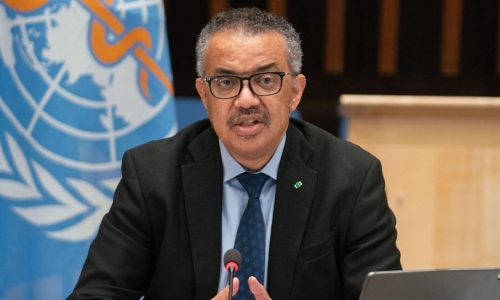Monkeypox: How WHO decides if a disease is a global health emergency
Agencies | Geneva
The Daily Tribune – www.newsofbahrain.com
A Public Health Emergency of International Concern (PHEIC) is the rarely used top alert available to the World Health Organization to tackle a global disease outbreak.
The WHO on Saturday declared the surge in monkeypox to be a PHEIC after experts reviewed the situation at an emergency committee meeting two days earlier.
The conditions which must be met are set out under the 2005 International Health Regulations (IHR) - the legal framework defining countries' rights and obligations in handling public health events that could cross borders.
A PHEIC is defined in the regulations as "an extraordinary event which is determined to constitute a public health risk to other states through the international spread of disease and to potentially require a coordinated international response".
The definition implies that the situation is serious, sudden, unusual or unexpected, carries implications for public health beyond an affected country's border, and may require immediate international action.
The WHO's 16-member emergency committee on monkeypox is chaired by Jean-Marie Okwo-Bele from the Democratic Republic of Congo, who is a former director of the WHO's Vaccines and Immunisation Department.
The committee brings together virologists, vaccinologists, epidemiologists and experts in the fight against major diseases.
It is co-chaired by Nicola Low, an associate professor of epidemiology and public health medicine from Bern University.
The other 14 members are from institutions in Brazil, Britain, Japan, Morocco, Nigeria, Russia, Senegal, Switzerland, Thailand and the United States.
Eight advisers from Canada, the DRC, South Africa, Sweden, Switzerland and the United States also take part in the meetings.
The emergency committee provided WHO chief Tedros Adhanom Ghebreyesus with an assessment of the risk to human health, the risk of international spread and the risk of interference with international traffic.
But it was unable to reach a consensus on whether or not to trigger the highest alert, Tedros said Saturday, so the WHO chief then had to decide himself.
The WHO has previously declared a PHEIC six times:
The pandemic was first detected in Mexico and then quickly spread across the United States and the rest of the world.
Declared following a rise in cases of wild polio and circulating vaccine-derived poliovirus. Besides Covid, it is the only PHEIC still in place.
The outbreak in western Africa spread to Europe and the United States.
The epidemic began in Brazil and heavily affected the Americas. The only PHEIC declared over a mosquito-borne virus.
The second Ebola PHEIC was over the outbreak in Kivu in eastern DRC.
Declared when -- outside of China where the virus first emerged -- there were fewer than 100 cases and no deaths.
The Covid-19 PHEIC declaration came after a third meeting of the emergency committee on the spreading virus. Meetings on January 22 and 23, 2020 decided that the outbreak did not constitute a PHEIC.
Despite the declaration, it was only after March 11, that Tedros described the rapidly worsening situation as a pandemic, leading many countries to wake up to the danger.
The sluggish global response still rankles at the WHO's headquarters and raised questions about whether the PHEIC system under IHR was fit for its purpose.
By March 11, the number of cases outside China had soared, with more than 118,000 people have caught the disease in 114 countries, and 4,291 people have lost their lives, following a jump in deaths in Italy and Iran.
"The warning in January was way more important than the announcement in March," WHO emergencies director Michael Ryan said on the second anniversary of the pandemic declaration.
"People weren't listening. We were ringing the bell and people weren't acting.
Related Posts

